Share
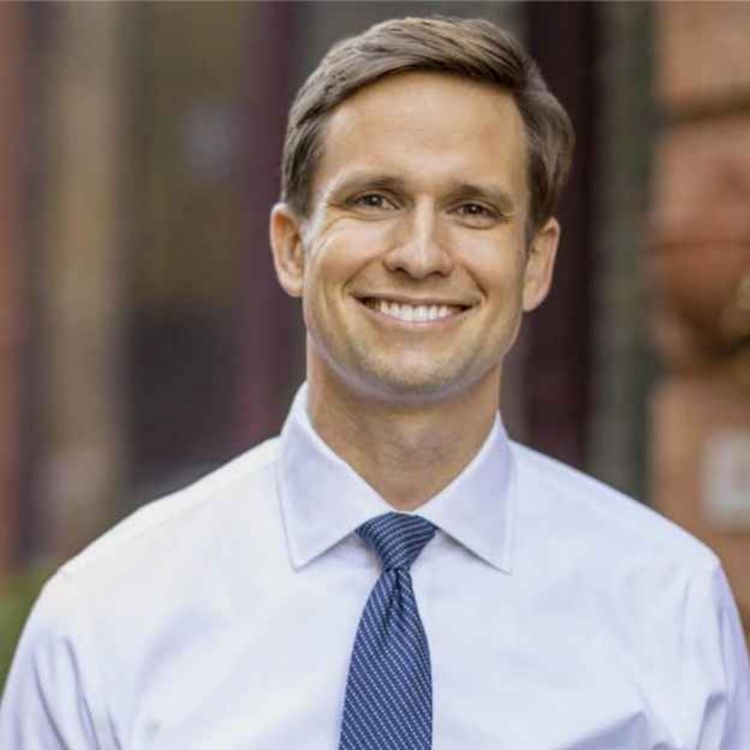
This Sustainable Life
548: Erik Bottcher, part 1: a New York City politician awesome enough to pick up litter
Ep. 548
•
Erik Bottcher is my elected legislator. New York City's council presides over a budget bigger than most countries'.
Yet I met him picking up litter. He organized weekly clean-ups when the city dropped its sanitation budget during the pandemic. He also sees the problem not as too little cleaning up but too much supply of packaging that becomes litter.
Let's pause for a moment. How many politicians have you heard of who bend down and pick up litter, week after week? I think the world would benefit from all of them doing it.
We talk about changes to the city we'd like to see. He shares about growing up gay not in Manhattan but the Adirondacks, then coming to the city and how that affects his governing.
More episodes
View all episodes
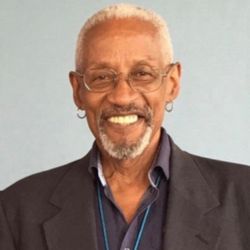
804. 804: Robert Fullilove EdD, part 1: Lessons from America's Civil Rights era and effective action today
01:20:30||Ep. 804People call my behavior extreme, though I'm just acting in service of others. To be more precise, I'm acting in love for others. When people suggest what I'm doing is too hard, I sometimes remark how during America's Civil Rights era, some people went to jail for different people's freedom.Nobody looks forward to going to jail, yet people did. Their actions make mine look easy and fun. Still, I suggest, I bet they consider those actions of going to jail or even being attacked by dogs or beaten some of the best events of their lives. I doubt they regret it. I wanted to confirm my beliefs.I didn't go out of my way, but I looked out for people who had marched, protested, and gone to jail then. Then, a few months ago, I saw Robert Fullilove speak on a panel on leadership for Columbia's alumni community. He stole the show. That is, he was entertaining, engaging, fascinating, and informative. He spoke about many things: education, public health, prisons, and, catching my ear most, his involvement in the Civil Rights era.I brought him to the podcast as soon as I could, meeting him in his office. We talk about all the topics he did and more: education, public health, prisons, his involvement in the Civil Rights era, and more. In particular, not only does he not regret going to jail for other people's freedom, he considers that experience essential for him teaching public health today.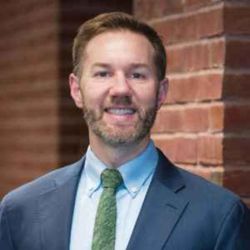
803. 803: Nick Loris, part 3: Liberty, freedom, sustainability, and Rock Creek Park
41:57||Ep. 803You probably came to hear Nick's experience exploring Rock Creek Park in Washington DC based on his childhood experiences in nature with his father. Since we recorded shortly after my visit to DC, where I missed Nick but visited his friends and colleagues, and podcast guests, Jack Spencer and Travis Fisher, we talked about them. I mentioned visiting Heritage and Cato. Then we spoke about differences between conservatism and classical liberalism, as well as their different approaches to energy and the environment.Then we spoke about his experiences recreating the awe and wonder he recalled from his childhood. I predict you'll find the experience heartwarming.We inadvertently ended on a cliffhanger: if his experience improved his life while leading to consuming less and requiring less extraction, what if everyone improved their life while lowering overall economic activity? I think you'll enjoy our build up to that view. You'll have to wait like us for the next conversation.- 01:11:52||Ep. 802I start by sharing how much value I get from participating in Lorraine's weekly coaching group.Then she shares her path to coaching on sustainability. She worked in the heart of the corporate sustainability accounting and reporting. She saw it mostly did nothing and often exacerbated the situations it purported to solve.She has created a practice that exposes and helps fix these problems. I ended up coaching her back in asking her to clarify what a potential client would see in her work to start working with her.As I wrote before, Lorraine understands our environmental situation more accurately than nearly anyone. We have to change our culture. Transforming leaders of industry is necessary if we expect to change the system.Lorraine's home page
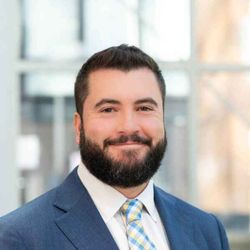
801. 801: Travis Fisher, part 3: Restoring time with family
38:07||Ep. 801Meaningful interactions don't have to be complex. Travis simply shares his experiences in nature in childhood and finds ways to recreate the emotional experience today. To me the most meaningful part is the result: he expects to spend more time with his children (and dog) doing something he's meant to do a long time. It doesn't cost money. It sounds like it will give him more time. The cleaning part, we'll see how it goes, though I predict the activation that comes from that part of it will affect him.He works in policy so he describes how he sees personal change leading to systemic change more than trying to start with something top-down alone, like working from government or coercion. As I understand, he sees more than most that starting from intrinsic motivation, as the Spodek Method does, can lead to exponential growth in cultural change.Time will tell, but I see it happening.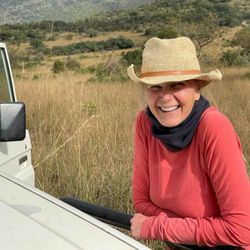
800. 800: Lorna Davis, part 4: After the Sustainability Leadership Workshop
01:02:20||Ep. 800If you haven't listened to my conversation with Lorna before taking the sustainability leadership workshop, I recommend listening to it first: 794: Lorna Davis, part 3: Before taking the sustainability leadership workshop.In this episode, Lorna shares her experiences, reactions, and thoughts from taking the workshop. They're all multifaceted. They come from her classmates, leading them in the exercises, being led by them in the exercises, curiosity, and more. She shares vulnerabilities as openly as her discoveries and new commitments.I predict you'll find her engaging and captivating. Longtime listeners have heard me talk about the workshop, maybe Evelyn, but you might think consider me biased as the person who developed it and Evelyn as someone else leading it. Check out Lorna's experiences.If interested in learning more about the workshop or taking it, contact me.Lorna's home pageHer TED talk
799. 799: Josh Bandoch, part 2: Leadership: Humans feel first, then reason
01:02:59||Ep. 799Josh and I talked about a few aspects of his acting on his commitment from the Spodek Method. For one thing, since he and I both study, practice, and teach leadership, we talked about the technique, how it works, how it impacted him. Since leadership involves emotion, empathy, and related social and emotional skills, we talked about the emotional journey.If you ever want to infuriate me, maybe the most effective way is to get me talking about environmentalists who talk only science and policy, just what they consider the facts that make them right. They try to browbeat people into doing what they don't do themselves, as if integrity, credibility, and personal, hands-on, practical experience didn't matter for leading others. They're essential. Oops, I could feel the fury rising.Josh and I talk about what works in leading and influencing others. Listening works more than lecturing. Empathy more than instruction. Intrinsic motivation over extrinsic.Also we talked about finding and experiencing the beauty of nature, including something of his Kauai experience in Chicago, not despite but in part because he picked up litter too. As always, once people start picking it up, they find more than they thought, including in places they pass daily.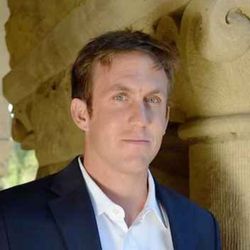
798: Nick Romeo: The Alternative: How to Build a Just Economy
57:13|Regular listeners and readers of my podcast and blog know I grew up with parents who helped form a grocery buying group which folded into a food co-op. Different co-ops work differently, but the general idea is that shoppers co-own the business. There's less motivation to stock doof and more to source local, fresh produce and keep money in the community. While we still shopped at supermarkets, we favored the co-op for having greater selection of produce that was fresher and tasted better. It was such a part of my childhood that I make sure to belong to a co-op today.Many people today see co-ops as luxuries or privileged, which seems bizarre to me since they did it because they didn't have much time or money and had three children to feed. I also see them as not capitalist, communist, or representing any particular political or economic system. They're just people shopping together.Nick Romeo's book title refers to Margaret Thatcher saying there was no alternative. Quoting Wikipedia:"There is no alternative" is a political slogan originally arguing that liberal capitalism is the only viable system. At the turn of the 21st century the TINA rhetoric became closely tied to neoliberalism, and its traits of liberalization and marketization. Politicians used it to justify policies of fiscal conservatism and austerity.In a speech to the Conservative Women's Conference on 21 May 1980, Thatcher appealed to the notion saying, "We have to get our production and our earnings into balance. There's no easy popularity in what we are proposing but it is fundamentally sound. Yet I believe people accept there's no real alternative." Later in the speech, she returned to the theme: "What's the alternative? To go on as we were before? All that leads to is higher spending. And that means more taxes, more borrowing, higher interest rates more inflation, more unemployment."I grew up knowing plenty of alternatives to what other people couldn't imagine alternatives to. Nick's book treats plenty of alternative systems that work. I found the book while researching Mondragon by way of his New Yorker article How Mondragon Became the World’s Largest Co-Op: In Spain, an industrial-sized conglomerate owned by its workers suggests an alternative future for capitalism.Beyond the details of particular alternatives like co-ops, purpose trusts, letting citizens make crucial budget decisions, job guarantee programs, and so on, his book undermines the belief that no alternatives exist. Unquestioned beliefs are a big part of culture. Sustainability is full of them. They show a failure of imagination and promote it too.Nick's book reverses that course.Nick's home pageNick's articles at the New Yorker
797. 797: Alden Wicker, part 2: Try and Try Again: E-biking in Vermont
39:24||Ep. 797Many people think sustainability requires fixing everything or else we'll collapse. The Spodek Method creates a mindset shift followed by continual improvement, not, as they might hope, a mindset shift followed by perfection.Alden has had her electronic bike in Vermont for some time but hasn't ridden it. She's used doing the Spodek Method as her excuse to ride it, but it's taken time. This time she used it and you'll hear both how she got it working as well as the challenges. As tends to happen with acting on sustainability, even the challenges end up rewarding.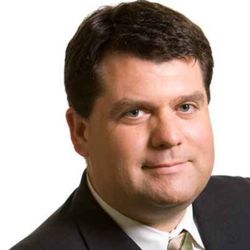
796. 796: Jack Spencer, part 3: Authenticity on Acting on Sustainability (also Project 2025)
44:45||Ep. 796We start by talking about the internal challenges Jack felt about acting to do something he wouldn't have otherwise. He cares about the environment and lives accordingly. Still, he wouldn't have done what he committed to when we spoke. Does that mean what we would do is inauthentic?Then we talk about nuclear and other policy issues. Heritage's Project 2025 came up so he shared some back story the news doesn't cover about it.Then we return to acting. On my suggestion, he invites me to visit and fish. I see this call as the beginning of meaningful collaboration and friendship based on a different approach to sustainability than I've seen in mainstream environmentalism.
